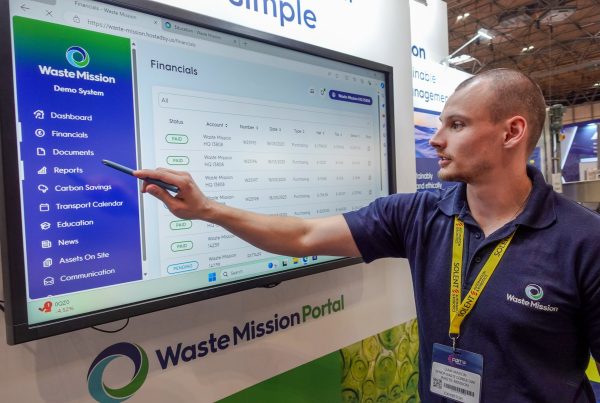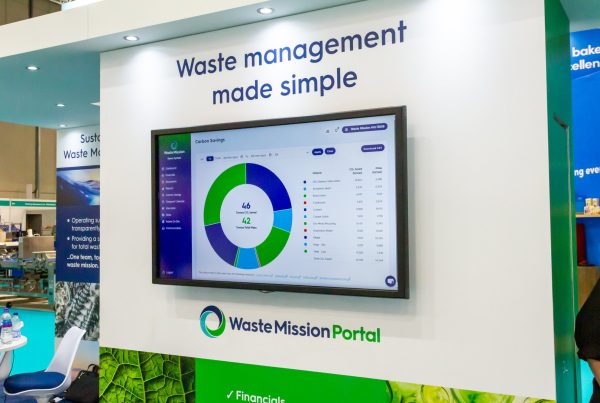Is your business ready for the new simpler recycling legislation due to be enforced on March 31st 2025?
The UK's Department for Environment, Food and Rural Affairs (DEFRA) has announced new 'Simpler Recycling' regulations for all businesses across England.
Starting from the end of March 2025, businesses in England (with more than ten full-time employees) could be legally required to separate general waste from food waste and dry recyclables.
You can find out more information on the UK government website. While the deadlines could change, the focus will stay the same, and we recommend getting to grips with what’s ahead.
This article sets out to:
- Explain why these new measures are being introduced
- Explore how to prepare for them
- Show how your business can benefit from the changes.
N.B: However, if your business has fewer than ten employees, this does not apply to you until 31st March 2027.
Understanding why Simpler Recycling Legislation is being Introduced
The new recycling legislation aims to simplify waste management for businesses, increase recycling rates, and reduce waste crime. Let's explore each section.
Simplifying Waste Management
How often do you head to a recycling bin with your leftover lunch packets and wonder what items can be thrown in? The plastic bottle? The sandwich packet? Maybe the crisps or chocolate bar wrapper?
This legislation aims to end confusion and ensure every employee across the country knows precisely which bin their waste should go in.
The new, consistent, simpler approach allows all dry recyclable waste (paper, card, plastic, metal, and glass) to be thrown in one dedicated bin and all food waste in its own separate bin.
This new standardised update also ensures consistency across the country – reducing any postcode lottery confusion.
Increasing Recycling Rates
Envirowise, a government-funded group that advises businesses on sustainability, states, "70 percent of office waste is recyclable, but on average, only 7.5 percent reaches a recycling facility".
DEFRA has set targets for the UK to achieve a recycling rate of 60 percent by 2030 and 65 percent by 2035.
The new simpler recycling legislation ensures that the six core business recycling streams—paper, card, plastic, metal, glass, and food—are consistently recycled across the UK.
Reduce Waste Crime
From fly-tipping to illegal waste exports, waste crime encompasses illegal disposal methods.
The Environment Agency estimates that waste crime costs the UK economy £1 billion every year. While waste crime has serious consequences for the planet and human health, most waste crimes go unnoticed and unreported.
To reduce waste crime and reform the licensing system for waste carriers, brokers and dealers, the government plans to introduce mandatory digital waste tracking for businesses from April 2025. This aims to centralise reporting and reduce illegal waste activity.
Now that you understand why the new measures are being introduced let’s look at the recycling streams to ensure your business is prepared for the changes.
Understanding the Recycling Streams
If your business has more than ten full-time employees, you will be required to organise the following materials for recycling:
- Food waste: including organic waste intended for humans and pets, plus inedible biodegradable material such as eggshells, bones and teabags.
- Glass: bottles and jars
- Plastic: plastic bottles, tubs, pots and trays, plastic tubes larger than 50mm x 50mm, food and drink cartons. By March 2027, plastic film packaging will be included in this list.
- Paper and cardboard: Use only paper and cardboard, without glitter or foil, laminated pieces, stickers or sticky paper, or padded lined envelopes.
- Metal: aluminium or steel aerosols, tins, cans, jars, and bottle lids, plus aluminium foil, tubes, and food trays.
Preparing for the Simpler Recycling Legislation
Under DEFRA's new plans, your business must arrange rubbish collections by licensed waste carriers. This must include recycling for glass, paper, plastic, cardboard, and metal, as well as composting food waste.
At Waste Mission, we can help your business prepare for these changes by:
- Reviewing the waste your business produces and the quantity
- Exploring your current waste management practices
- Putting in place the best system moving forward for your business.
We can help you choose the right bins
From stackable metal containers to wheelie bins and balers, we have a commercial bin for every type of waste. We can colour-code them to ensure employees know which item to throw where, plus our bins are lidded and lockable to reduce any chance of theft.
We can manage your collection schedules
A collection schedule can be arranged daily, weekly, or fortnightly. You can determine the collection day that works best for you.
At Waste Mission, we can tailor your waste requirements to your needs, regardless of their complexity. Once we understand your requirements, you'll be well on the way to an effective waste management plan that achieves your targets.
How your Business can Benefit from the Simpler Recycling Legislation
Efficient resource use, such as recycling practices, has the potential to save UK businesses an estimated £23 billion every year.
Adopting recycling programmes can also lead to considerable cost savings, as recycling sacks are less expensive than general waste sacks, reducing waste management expenses.
Moreover, businesses can enhance their financial bottom line through the operational cost savings achieved by implementing recycling measures.
Incorporating recycling into business operations saves money and can give a business a competitive advantage in the business market. It can attract consumers who value ethical practices and potentially open new revenue streams.
Summary
By the end of March 2025, in line with the new simpler recycling legislation, businesses across England need to ensure they're separating general waste from food waste and dry recyclables and arranging collections by licensed waste carriers.
At Waste Mission, we are excited about this significant step forward. We fully support the effort to transform recycling in England and improve recycling systems, reducing the impact of avoidable waste being sent to landfills.
However, we understand how navigating new legislation, implementing new processes and encouraging buy-in from staff and customers can be an exhausting process. Thankfully, you don't need to struggle alone.
At Waste Mission, we can do all the hard work for you and save you costs in the long run. Change doesn't have to be expensive.





